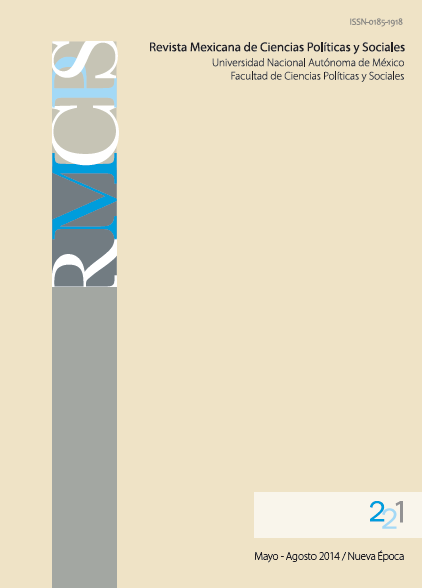Memory and Democracy. An Uncertain Relationship
Main Article Content
Abstract
Downloads
Article Details
Citas en Dimensions Service
References
Aguilar Fernández, Paloma, (1996) Memoria y olvido de la Guerra Civil Española. Madrid, Alianza.
Comisión de la Verdad y Reconciliación, (2003) Informe Final de la Comisión de la Verdad y Reconciliación. Lima, Comisión de la Verdad y Reconciliación.
Da Silva Catela, Ludmila, (2007) “Poder Local y Violencia: Memorias de la Represión en el Noroeste Argentino” en Isla, Alejandro (ed.), En Los Márgenes de la Ley: Inseguridad y Violencia en el Cono Sur. Buenos Aires, Paidós Tramas Sociales.
Keck, Margaret y Kathryn Sikkink, (1998) Activists Beyond Borders. Ithaca, Cornell University Press.
Markarian, Vania, (2006) Idos y recién llegados: La izquierda uruguaya en el exilio y las redes transnacionales de derechos humanos 1967-1984. Montevideo, Correo del Maestro.
Sikkink, Kathryn, (2011) The Justice Cascade. How Human Rights Prosecutions are Changing World Politics. Nueva York, Norton.
Theidon, Kimberly, (2007) “Gender in Transition: Common Sense, Women and War” en Journal of Human Rights. Vol. 6, núm. 4, Octubre-Diciembre.
Vinyes, Ricard, (2009) “La memoria del Estado” en Ricard Vinyes (ed.), El Estado y la Memoria. Gobiernos y ciudadanos frente a los traumas de la historia. Barcelona, RBA Libros.
Young, James, (1993) The Texture of Memory. Holocaust Memorials and Memory. New Haven, Yale University Press.
Young, James, (2000), At Memory's Edge: After-images of the Holocaust in Contemporary Art and Architecture. New Haven, Yale University Press.

La Revista Mexicana de Ciencias Políticas y Sociales publicada por la Universidad Nacional Autónoma de México se distribuye bajo una Licencia Creative Commons Atribución-NoComercial-SinDerivar 4.0 Internacional.
Basada en una obra en http://www.revistas.unam.mx/index.php/rmcpys/
La RMCPyS autoriza a sus colaboradores que suban una copia de sus trabajos publicados en sus webs personales o en cualquier repositorio de acceso abierto, siempre y cuando se mencione específicamente a la Revista Mexicana de Ciencias Políticas y Sociales como fuente original de procedencia, citando el año y número del ejemplar respectivo y añadiendo el enlace a la página web donde este órgano editorial puede ser consultado in toto, de manera abierta y gratuita en: <www.revistas.unam.mx/index.php/rmcpys>.
Las y los lectores tienen libertad para:
Compartir, copiar y redistribuir el material en cualquier medio o formato.
El licenciante no puede revocar estas libertades en tanto usted siga los términos de la licencia.
De acuerdo con los siguientes términos:
- Atribución: la/el lector/a debe reconocer el crédito de una obra de manera adecuada, proporcionar un enlace a la licencia, e indicar si se han realizado cambios. Puede hacerlo en cualquier forma razonable, pero no de forma tal que sugiera que tiene el apoyo del licenciante o lo recibe por el uso que hace.
- No comercial: la/el lector/a no puede hacer uso del material con fines comerciales.
- Si se mezcla, transforma o se desarrolla a partir de la obra licenciada, no se permite la distribución del material modificado.
Cargos por gestión de artículos
La Revista Mexicana de Ciencias Políticas y Sociales NO cobra tarifas por recibir, procesar o publicar los artículos (Article Processing Charge [APC]) enviados por los autores.

